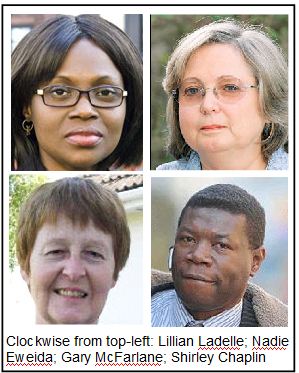European Court to decide on Christian 'Freedoms'
The limits to which British Christians are free to manifest their faith in the public square will be determined by Judges sitting in the European Court in Strasbourg.
first published 30/08/12
See 'Responses' at foot of article for update.
 Last year the Equalities and Human Rights Commission (EHRC) signaled a major U-turn in their policy regarding the rights of religious believers with the announcement that it intended to intervene in support of four cases made by UK Christians to the European Court of Human Rights claiming religious discrimination. Last year the Equalities and Human Rights Commission (EHRC) signaled a major U-turn in their policy regarding the rights of religious believers with the announcement that it intended to intervene in support of four cases made by UK Christians to the European Court of Human Rights claiming religious discrimination.
In an unprecedented hearing on Tuesday (4 Sept.), the Justices will hear appeals from four British Christians who believe the British Courts, and Laws set by the former Labour Government under the Equality Act, discriminate against their Human Rights.
In recent years, a number of high profile cases have come into the public domain where Christians who expressed their faith, either through refusing to carry out activities which went against the historic teaching of the Christian faith, or through wearing historic Christian symbols, were penalised in the workplace by employers – many have been sacked, or denied work in professional environments.
The four Christians are: Gary McFarlane, an experienced relationship counsellor who was sacked by a counselling service for saying that he might not be comfortable in giving sex therapy to homosexual couples; Shirley Chaplin, a nurse who was banned from working on hospital wards for wearing a cross around her neck; Nadia Eweida, a British Airways employee who was prevented from wearing a cross; and Lillian Ladele, who was disciplined by Islington Council for refusing to conduct civil partnership ceremonies for homosexual couples.
Andrea Minichiello Williams, barrister and founder of the Christian Legal Centre said:
“Gary and Shirley have received massive support from the British public who believe that political correctness has gone mad and that hard-working public servants and employees are being discriminated against simply because of their faith. It is very clear at the moment that there is either a major problem in the way that the Equality Act was drafted, and/or the way in which the Courts, and employers, fail to balance the rights of various groups and beliefs.
“The workings of the UK courts has led to deep injustice. If we are successful in Strasbourg I hope that the Equality Act and other diversity legislation will be overhauled, so that Christians are free to work and act in accordance with their conscience.”
According to its press release the goal of the EHRC’s intervention in these four cases is to establish the legal principle of ‘reasonable accommodations’ that will help employers and others manage how they allow people to manifest their religion or belief. John Wadham, EHRC’s lawyer explained:
‘The idea of making reasonable adjustments to accommodate a person’s needs has served disability discrimination law well for decades. It seems reasonable that a similar concept could be adopted to allow someone to manifest their religious beliefs.’
The EHRC gives the following example of how ‘reasonable accommodation’ would work in practice:
‘ For example, if a Jew asks not to have to work on a Saturday for religious reasons, his employer could accommodate this with minimum disruption simply by changing the rota. This would potentially be reasonable and would provide a good outcome for both employee and employer.’
If this principle of ‘reasonable accommodation’ were applied to the cases of Lillian Ladele and Garry McFarlane, for example, their conscientious refusal to offer services to gay couples could be easily accommodated by other members of staff dealing with homosexuals.
The Christian Legal Centre is representing Shirley Chaplin and Gary McFarlane and has instructed Human Rights barrister, Paul Diamond, to represent them in court. Meanwhile, Lillian Ladelle is to be represented by Dinah Ross QC as her leading counsel. Joshua Rozenberg, the highly-respected lawyer and journalist has outlined her case and his views on the Law Society's web site.
|